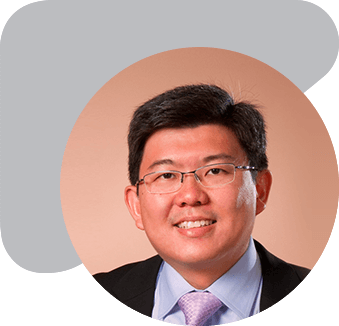Where is the Pancreas and What Does It Do?
The pancreas is a glandular organ about six inches long that resembles a flattened pear and extends horizontally in the upper abdomen (belly). This organ is located between the stomach and the spine, surrounded by other tissues such as the liver, gallbladder, small intestine, and spleen.
There are two main functions of the pancreas: an exocrine function that releases digestive enzymes or juices into the small intestine and an endocrine function that produces the hormone insulin or glucagon in the bloodstream to control blood sugar levels.
What is Pancreatic Cancer?
What is Whipple Surgery?
Also known as pancreaticoduodenectomy, the Whipple procedure is a complex surgery that allows doctors to treat patients with pancreatic cancer. This procedure removes cancerous tumours from the head of the pancreas, the upper part of the small intestine (duodenum), the portions of the bile duct and the gallbladder, as well as the stomach (pylorus), and nearby lymph nodes. Following the procedure, the pancreas surgeon reattaches the remaining intestines, bile ducts, and pancreas to allow for normal digestive function.
Who is a Good Candidate for Whipple Surgery?
Only about 15 to 20 percent of pancreatic cancer patients can undergo Whipple surgery in Singapore. This procedure primarily helps patients with tumours located within the head of the pancreas. Cancerous growths that have spread to major blood vessels, the abdominal cavity, the liver, and the lungs cannot be treated with this procedure. A specialist skilled in pancreas surgery may conduct a series of tests to determine if a candidate is suitable for surgery.
When is a Whipple Procedure Done?
Aside from pancreatic cancer, the Whipple operation in Singapore is also commonly performed for pancreatic cysts, pancreatitis, duodenal cancer, pancreatic or gastrointestinal trauma, ampullary cancer, bile duct cancer, and neuroendocrine tumours.
Who Performs Whipple Surgery?
An experienced pancreatic surgeon, such as Dr Wong Jen San, will perform the Whipple procedure, which may take several hours to complete. They will also closely monitor the patient's vitals during surgery to ensure optimal safety throughout the procedure.
What are Other Types of Pancreatic Surgery?
Distal Pancreatectomy
Total Pancreatectomy
Vascular Reconstruction
Is the Whipple Procedure Inpatient or Outpatient?
Whipple surgery in Singapore is performed as an inpatient procedure. The length of hospital stay following this procedure is about one to two weeks, depending on the patient’s overall health and the extent of the surgery.
What are the Risks of Whipple Surgery?
As with any surgical procedure, Whipple surgery carries certain risks such as:
- Temporary or chronic diabetes
- Delayed gastric emptying
- Surgical infection
- Excessive bleeding
- Bile duct leakage
- Pancreatic fistula
- Weight loss
However, when managed by an experienced doctor, your risks will be kept to a minimum.
What Happens Before the Whipple Procedure?
The specialist in pancreas surgery will provide patients with detailed preparation instructions before undergoing Whipple surgery in Singapore. In general, patients should:
- Avoid eating and drinking after midnight on the day of the procedure
- Quit smoking
- Stop taking certain medications, as advised by their doctor
- Complete preoperative screenings, including blood tests, imaging tests, etc.
Is the Whipple Procedure an Open or Minimally Invasive Surgery?
While the Whipple procedure can be conducted using minimally invasive techniques, most pancreatic surgeons perform it as open surgery. Ultimately, this will depend on the skill of the surgeon and the nature of the patient’s condition.
How Long Does the Whipple Procedure Last?
A Whipple operation in Singapore usually takes around 4 to 8 hours, depending on various factors, such as the patient’s overall health and the extent of the procedure.
What Should I Expect After the Whipple Procedure?
Following a pancreatic surgery in Singapore, patients should expect a recovery period that will include an estimated week-long hospitalisation stay that involves pain management, monitoring for complications, dietary modification, physiotherapy and wound care. Once deemed safe for discharge, you will be sent home with detailed care instructions and a follow-up appointment date for your doctor to review your recovery.
When Should I Contact My Surgeon?
Patients should immediately contact their Singapore pancreas surgeon if they experience severe pain, high fever, severe bleeding or pus leaking from the incision, or bowel irregularities.

Dr Wong Jen San
Consultant Hepatobiliary & Pancreatic Surgeon
Upon graduating from the University of Leicester and completing his basic surgical training in the United Kingdom, Dr Wong went on to complete advanced training in Singapore before embarking on his HMDP clinical fellowship in Japan—specializing in living donor liver transplantation.
Prior to establishing his own practice, Dr Wong was previously a consultant with the Department of Hepatopancreatobiliary & Transplant Surgery at SGH, an adjunct assistant professor at the Duke-NUS Graduate Medical School and a visiting consultant at the National Cancer Centre Singapore.
Read more
is a Complex and Intricate One

